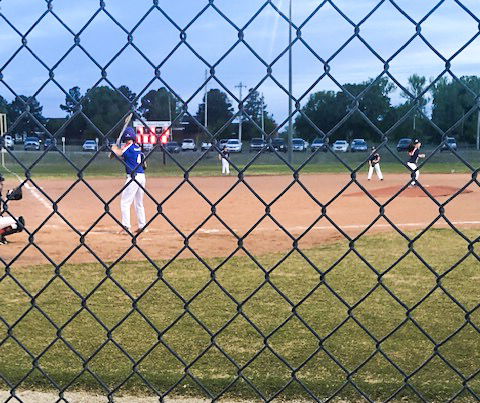What Your Athlete Needs To Hear From You
It’s 7:30 on a Monday night, and we’ve just arrived at the baseball field. It is impressively hot, and I’m exhausted from working the night before and only catching a 3 hour nap. My twins run ahead of me while I carry a 35 lb toddler on my hip. We arrive at the dugout as number 4, my athlete, looks over, gives a quick wave and a shy smile, just big enough for me to see his dimple. I sit down on the bleachers and look over at my husband with a sigh. I am surrounded by parents in fancy camp chairs, taking videos while their kids bat, and talking to each other about stats that I don’t understand. I glance over at my toddler, who has taken a break from chewing on a chain-link fence to pet a random dog, and I feel momentarily guilty that there are other places I’d rather be than at my 10 year old’s baseball game that doesn’t even start until after my kids’ bedtime.
My husband and I grew up playing sports year- round. We weren’t phenoms by any stretch, but we were natural athletes and we enjoyed the competition. Slowly our son has lost interest in certain sports and, rather than feeling sad, we are a little relieved. We have spent countless mornings in the hot sun, watching our kid wander around a soccer field and calling out to him to remind him that he is, in fact, playing in a game. But baseball is what remains. And here we are, almost done with the season, and my son has yet to hit the ball. At this point, I just pray for a walk so that he will at least have some experience running the bases.
Suddenly it’s his turn to bat. I’ve stopped trying to video him many games ago and he told me that when I cheer it makes him nervous, so I just sit quietly, my heart in my throat. After he strikes out and a new inning begins, he walks off the field, looks over at us, and gives a small shrug and a quick smile. I smile back and give him a thumbs up. He may not be the best athlete, but I know he tried his best.

As the new pitcher takes the mound, I hear the pitcher’s dad behind me. He yells his critiques to his son after every pitch. After several minutes of this “constructive criticism,” the pitcher gives his dad an exasperated look. The dad laughs and proclaims to his friends, “I don’t know what his problem is! He always gets so butt-hurt over what I say!” Hearing this made me wonder what other “helpful feedback” this 9 year old kid has had to endure on the way home from his games.
I remember when I stopped working weekends and was able to see my son play in a basketball game. I watched him amble up and down the court like a newborn giraffe, missing pass after pass. I looked at my husband, eyes wide, and asked him if it was always like this. He just nodded. So of course, being a competitive person and wanting to help him, I cornered him at the first water break, offering numerous unsolicited tips and strategies. His shoulders slumped, he looked at the ground, and mumbled, “okay.” I felt awful. It was obvious that wasn’t the way to help him.
You see, kids want our constant critiquing of their games as much as we would want someone following us around at work continuously telling us how we can improve. I know parents love their kids and think this technique is helping, but it can be so spirit-crushing for young players. A study conducted over a span of 30 years found that the one thing that young players want to hear from their parents is, “I love to watch you play.”
So, as my son and I drive home from another game where he never touched the ball, I think about all those moments where he celebrated his teammates’ hits, where he swung the bat even though he was nervous, where he consoled a friend who struck out, where he kept a good attitude while he rode the bench, and I look back at my athlete and simply say, “I loved watching you play.” He smiles, mouth full of his post-game snack and says, “Thanks, Momma!”










I loved this post so much! It’s such a great reminder for parents, and I’m so glad you shared your story!